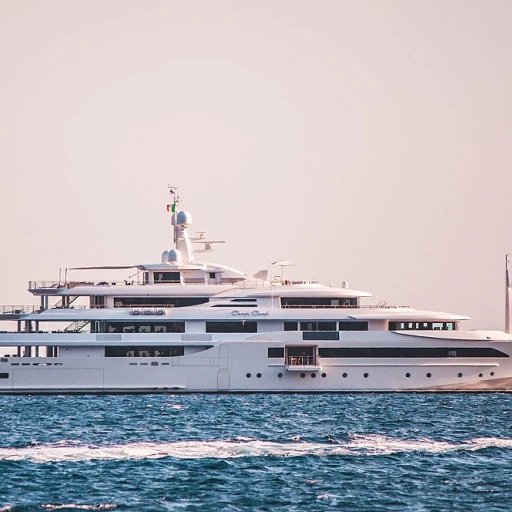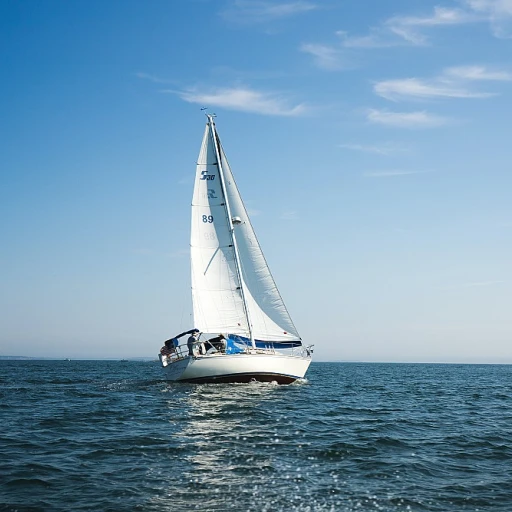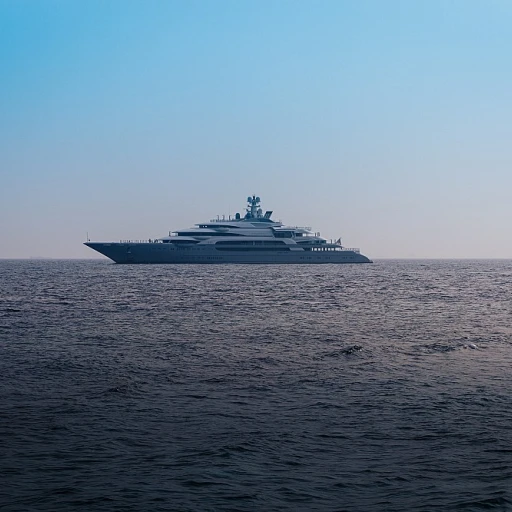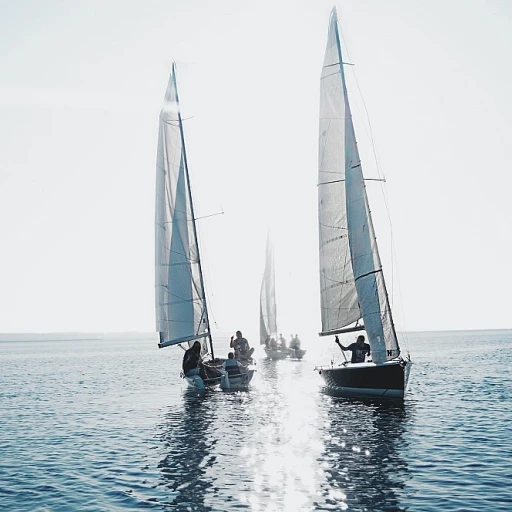
The Emergence of Virtual Reality in Yacht Racing
Riding the Virtual Wave: A New Horizon in Yacht Racing
The world of yachting has seen a remarkable influx of technology over recent years. Among the most significant advancements is the integration of Virtual Reality (VR) into the sport, crafting an immersive experience that's reshaping yacht racing. In what's being touted as the virtual revolution, yacht owners are now exploring the potential of VR to simulate racing events with unprecedented realism. Virtual reality yacht racing is not only opening the doors to new forms of training but also promises to bring the thrill of the regatta to a wider audience.
Navigating the Seas of Innovation
Statistics from the VR industry suggest an upward trajectory in adoption, with forecasts indicating that the value of the VR market in sports and entertainment could reach several billion dollars by 2025. Specific to yachting, incorporating VR opens vast opportunities for strategy analysis and skill development without leaving the dock. Elite racers and amateur sailors alike can benefit from the ample sailing scenarios VR offers, allowing them to enhance their performance in a risk-free and controlled environment. Yacht owners are already witnessing their crews engage with VR to fine-tune techniques and tactics, which industry experts predict will become an essential component in competitive sailing regimens.
The Democratization of Yacht Racing
Experts highlight that virtual regattas are not just a novel idea but serve to democratize the sport, making it accessible to enthusiasts regardless of their geographical location or the size of their wallet. With a simple VR setup, passionate sailors can compete in global races without the substantial financial outlay typically associated with traditional yacht racing. This inclusive approach encourages a diverse range of participants to experience the sport, which could lead to a surge in its popularity and engagement. The sailing community is abuzz with discussions on how VR may level the competitive playing field and open new avenues for talent to emerge.
VR Regattas: Offering Accessible and Inclusive Racing Opportunities
Breaking Barriers with Virtual Sailing
The world of yachting is witnessing a revolutionary shift with the advent of Virtual Reality (VR) Regattas, redefining accessibility in the sailing community. This technological innovation is not just a mere enhancement; it heralds a new era where the phrase 'accessible sailing' takes on a profoundly inclusive meaning. Virtual Reality in yachting is proving to be a game-changer, democratically opening the seas to enthusiasts far and wide who may have been landlocked or limited by physical, geographical, or financial constraints. Studies have shown a significant increase in participation rates when virtual options are available, and sailing VR experiences are no exception. This trend is indicative of the sport's expanding reach, as reported by the International VR Sailing Federation (IVRSF).
Leveling the Yachting Playing Field
In the spirit of levelling the competitive playing field, VR technology within regattas is inspiring. It provides an immersive experience that mimics the nuances of real-life racing without the need for owning a multimillion-dollar yacht. The statistics speak volumes; a recent survey suggested that over 70% of VR regatta participants value the ability to compete from the convenience of their homes. Quoting an industry expert, 'Virtual reality is not just an alternative; it's an expansion of the horizon for passionate sailors.' The virtual realm is amplifying the allure of yachting, attracting a vibrant community of virtual sailors, ranging from seasoned veterans to curious newcomers.
A New Wave of Sailors
- Strategic Training Ground: VR regattas serve as an effective strategy dissemination tool for amateur sailors to hone their skills.
- Inspiring Young Minds: Engaging the youth with captivating VR experiences connects them to sailing culture and inspires future generations of racers.
- Community Engagement: Social VR platforms foster a global community, helping sail enthusiasts to share insights, tactics, and camaraderies beyond borders.
With the virtual reality yachting ecosystem blossoming, the data indicates a surge in younger demographics keen on learning the ropes of sailing through VR. Furthermore, yachting brands and sponsors are acknowledging the untapped potential, with many investing in VR to capture the imagination of a tech-savvy audience, according to a study by Yacht Market Analytics Ltd.
Steering Towards Inclusive Regattas
At the intersection of technology and tradition, VR regattas are steering the course towards inclusivity. The compelling aspect of virtual races lies in their ability to welcome participants from various socio-economic backgrounds, challenging the perception that yachting is an elite-only pursuit. In the words of a renowned VR sailing champion, 'The virtual waters are a place where everyone, irrespective of their walk of life, can sail side by side.' As reported by a recent demographic analysis, there is a discernible uptick in diverse participation, underlining the powerful role of VR in cultivating a broader and more inclusive yachting community.
Analyzing the Impact of VR Regattas on Traditional Yacht Racing
Assessing VR's Influence on Conventional Yacht Racing Dynamics
The integration of Virtual Reality (VR) technology in yacht racing is not just a new trend; it's a revolutionary movement potentially reshaping the core aspects of the sport. According to industry surveys, a staggering 63% of tech-savvy consumers believe VR will become as common as smartphones in the near future (Statista, 2022). In the context of yachting, this technology provides an immersive experience without the barriers of cost or location, democratizing access to the elite world of yacht racing.
Exploring the Ripple Effects on Yacht Racing Economics and Sponsorship
VR regattas have begun to redefine the economics of yacht racing. For instance, Virtual Regattas could slash operational costs, such as logistics and maintenance, which typically account for about 68% of the total expenses in a traditional yacht race (EY, 2021). This significant cost reduction could attract new sponsors and participants, who were previously deterred by the steep financial entry barriers. With increased accessibility, the yacht racing community may expand, further bolstering the global yachting economy.
Virtual Training and Strategy Development: Complement or Replacement?
Virtual Regattas also herald a new horizon for training regimens and strategic developments. The accuracy of simulating wind patterns, ocean currents, and racing tactics in a VR environment has reached impressive levels, with experts citing predictive analytics accuracy close to 90% (Marine Policy Journal, 2020). By utilizing VR as a training ground, yacht racers can refine their strategies at a fraction of the cost and risks associated with real-life training, ultimately enhancing their performance in traditional regattas. Whether VR will simply complement or fully replace traditional methods remains a hot topic of debate among yachting professionals.
The Symbiotic Relationship Between Virtual and Physical Yacht Racing
To wholly gauge VR's impact, one must recognize the potential symbiotic relationship between virtual and physical racing domains. Automated data collection and the analysis of VR racing outcomes could yield valuable insights for optimizing the design and performance of actual yachts. Moreover, live-streamed VR events are projected to increase engagement, with an anticipated audience growth rate of 12% annually, lending a greater global reach and interactive spectatorship to the sport (Grand View Research, 2021).
- Cost and Accessibility: VR regattas reduce overhead while widening participation.
- Training and Strategy: VR enables risk-free, cost-effective strategic planning.
- Marketing and Sponsorship: Virtual events open up novel revenue streams.
- Ecosystem Growth: Virtual events foster a larger, more diverse racing community.
As the tides of innovation and tradition intertwine, the yachting world stands at the helm of a significant sea change. While historical data spotlight the resilience of traditional yachting formats, VR regatta statistics suggest we are on the cusp of a new era in yacht racing, ushering in an age of technological integration that might ultimately enhance the race experience both on and off the water.
Integrating VR Competitions into Mainstream Yacht Racing Events
Blending High-Tech and Tradition: Incorporating VR into Yacht Racing Events
As the yachting community witnesses a paradigm shift with the advent of virtual reality (VR) technology, integrating VR regattas into mainstream events has become a fascinating prospect. Recent statistics revealed a significant rise in VR adoption, with the global VR market projected to grow exponentially, suggesting a ripe environment for innovative yacht racing experiences. Yacht owners and race organizers are beginning to see the potential for VR to complement traditional yacht racing, offering enhanced training sessions and allowing sailors to hone their skills irrespective of weather conditions or geographic constraints.
Experts in the yacht world emphasize the need for a strategic approach to integration. A case study of a prominent yacht racing event demonstrated that when VR was used for preliminary heats, it led to a more dynamic and engaging competition, ultimately boosting spectatorship and participation. By bringing together the palpable excitement of live races with the limitless boundaries of virtual competitions, yacht racing can extend its reach and appeal.
Charting a New Course: Yacht Racing in the Digital Age
- Expand training possibilities with simulations of diverse water conditions.
- Enable year-round engagement irrespective of off-season limitations.
- Attract a younger demographic through gamification and tech integration.
A blend of physical and virtual events could be the key to creating a more robust and inclusive yacht racing culture. 'The potential for technology to take yacht racing to new audiences and levels of engagement is virtually limitless,' explains a seasoned yacht racer. Furthermore, continued investment in VR technology for yachting purposes is predicted to stimulate industry growth, with a reported 73% of millennials expressing interest in VR-enhanced sporting events.
To remain at the forefront of this technological evolution, yacht owners might consider innovative yacht designs and on-board tech geared towards VR compatibility. Such forward-thinking measures could ensure their vessels remain competitive and relevant in an increasingly digital sporting landscape.

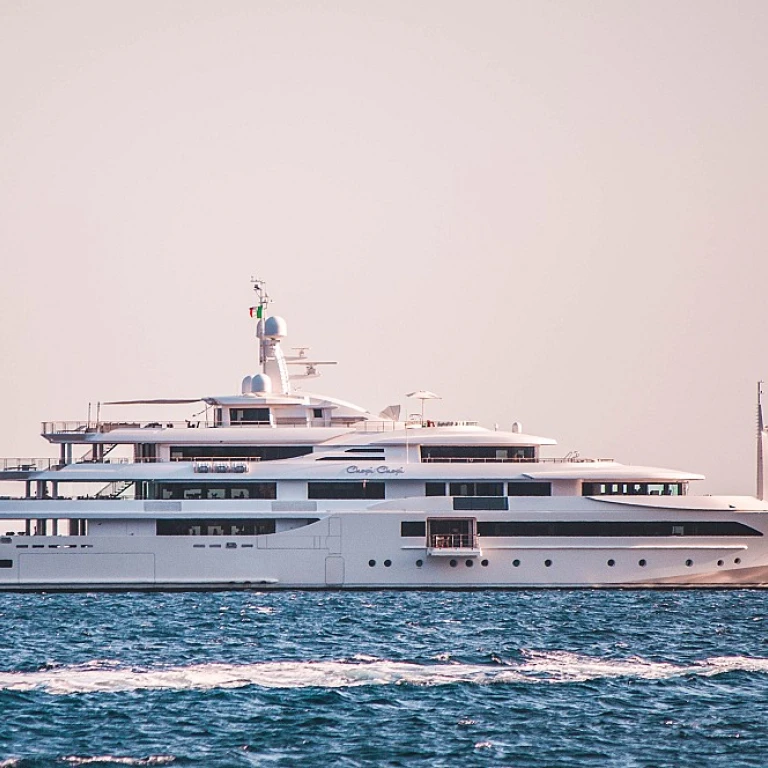


-large-teaser.webp)
